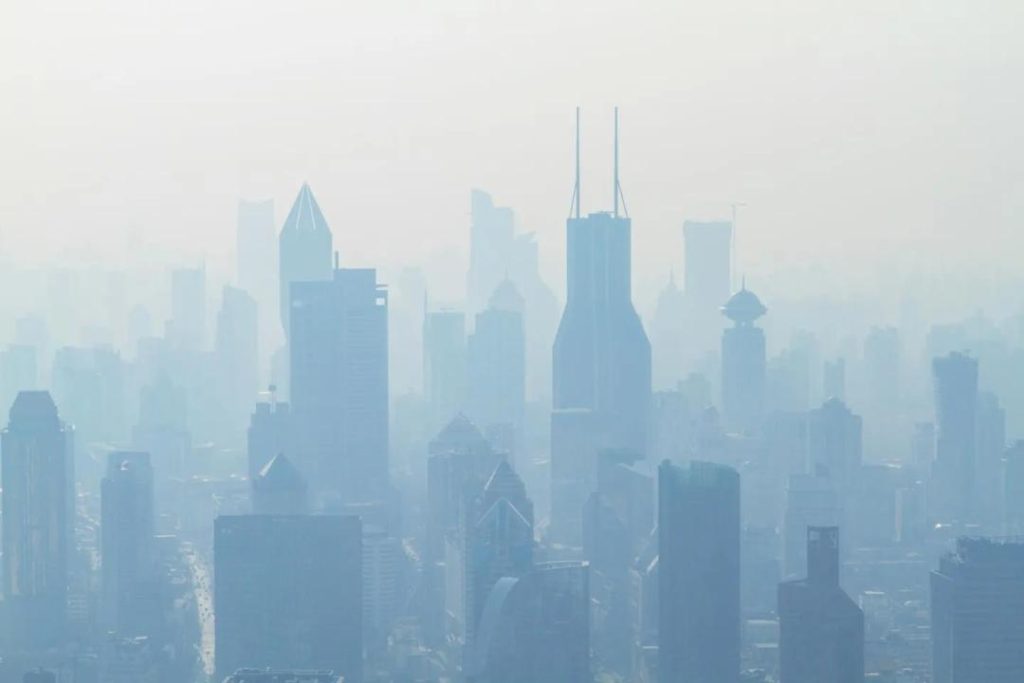
Air Pollution Clouds the Mind, Reduces People’s Ability to Focus: Study
In today’s world, air pollution has become a significant concern, with many cities struggling to meet the recommended air quality standards. While we are well aware of the physical health risks associated with air pollution, a recent study published in the journal Nature has shed light on its impact on our mental faculties. According to the study, even brief exposure to high concentrations of particulate matter (PM) can impair a person’s ability to focus, avoid distractions, and behave in a socially acceptable manner.
Researchers from the University of Colorado Boulder and the University of California, Los Angeles, conducted the study, which involved 36 participants aged between 18 and 40. The participants were exposed to either high or low concentrations of PM for a short period, after which they were asked to perform various cognitive tasks. The tasks were designed to assess their ability to focus, recognize emotions, and behave in a socially acceptable manner.
The results of the study were striking. Participants who were exposed to high concentrations of PM performed significantly worse on the cognitive tests than those exposed to low concentrations. Specifically, they had difficulty focusing on tasks, were more prone to distractions, and had impaired emotional recognition. In fact, the researchers found that even a brief exposure to high levels of PM could have a lasting impact on cognitive function.
The study’s findings are significant, as they suggest that air pollution may be having a more profound impact on our mental health and wellbeing than previously thought. While we often associate air pollution with physical health risks, such as respiratory problems and cardiovascular disease, it appears that it may also be affecting our mental faculties.
The researchers believe that the impact of air pollution on cognitive function is likely due to the way it affects the brain. PM pollution is known to cause inflammation and oxidative stress in the brain, which can lead to changes in brain function and structure. In this study, the researchers found that PM exposure was associated with reduced activity in areas of the brain responsible for attention and cognitive control.
The study’s lead author, Dr. Francesca Dominici, emphasized the importance of the findings, saying, “Air pollution is a major public health concern, and our study suggests that it may have a significant impact on cognitive function, particularly in areas such as attention and emotional recognition.” She added, “These findings have important implications for public health policy, as they suggest that reducing air pollution could have a significant impact on cognitive function and overall wellbeing.”
The study’s findings are not limited to the cognitive tasks performed during the experiment. In fact, the researchers believe that the impact of air pollution on cognitive function may be widespread, affecting people’s daily lives and relationships. For example, individuals who are exposed to high levels of air pollution may have difficulty concentrating at work, or may struggle to maintain social relationships due to their impaired emotional recognition.
The study’s results also have important implications for policy makers. As Dr. Dominici noted, “Reducing air pollution could have a significant impact on cognitive function and overall wellbeing. This is particularly important in regions where air pollution is a major public health concern.”
So, what can we do to reduce our exposure to air pollution and protect our mental health? The answer is simple: reduce your exposure to PM pollution. This can be done by avoiding areas with high levels of air pollution, using air purifiers in your home and car, and supporting policies that reduce air pollution.
In conclusion, the study published in Nature has shed light on the impact of air pollution on our mental faculties. The findings suggest that even brief exposure to high concentrations of PM can impair a person’s ability to focus, avoid distractions, and behave in a socially acceptable manner. As we continue to face the challenges of air pollution, it is essential that we take steps to reduce our exposure and protect our mental health. By working together, we can create a healthier, more sustainable future for ourselves and future generations.






